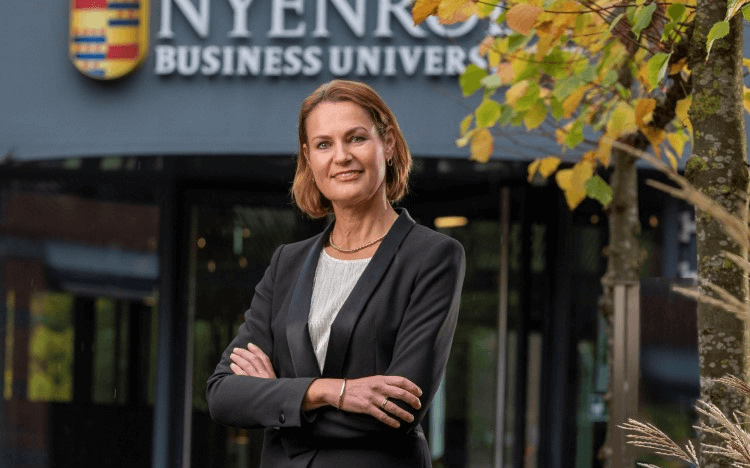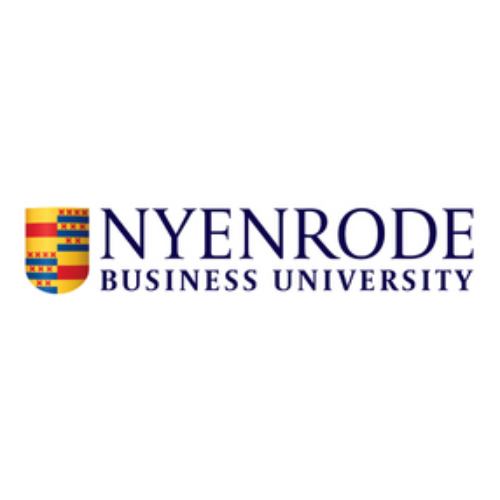Professor Lidewey van der Sluis is well placed to answer. She teaches organizational leadership and strategic talent management on the Full-time MBA program at Nyenrode Business Universiteit, and at the height of coronavirus uncertainty she has re-focused her module on leadership in a crisis.
What makes a good leader?

Whether it’s leadership in product management, heading up sales or marketing teams, or leading from the very top in the c-suite, MBAs are hired by employers for their management and leadership qualities.
Typically, the thinking has been that a leader needs to possess the right traits to succeed—communication skills, confidence, charisma, are all commonly cited. But for Lidewey, that theory is out of date.
“I don’t think it’s about traits, but rather based on shared principles and a shared purpose,” she says. “Rather than focusing on personality traits, being a good leader is about the relationships you want to have between people.
“Employees and stakeholders feel very uncertain in a crisis and they’ll always look to their leader first to ease that uncertainty.”
To develop into a business leader then, you should be less concerned by inherent traits. Instead, it’s about emotional connections within a team. After all, a leader of a business is an employee, too, and part of that collective.
“It’s our belief that all students from our MBA class have the potential to be a future leader,” Lidewey says. “That’s because leadership is about building relationships, it’s not about yourself.”
Leadership in a crisis

So how can an MBA help you become a better leader?
At Nyenrode, you focus on the ‘dream circle’ in Lidewey’s organizational leadership class. A three-part theory, it begins with ensuring any team or company has a shared purpose, or dream, to follow.
“That’s the starting point,” Lidewey explains. “If your team don’t follow that shared dream, then they won’t be able to work correctly.”
Once that collective purpose is established, the next step is the ‘dance’. This involves setting the groundwork by putting in place the right culture and behaviours in a company or team.
Finally, the ‘deliver’ phase. “With the same goal and the correct relationships in place, team members or employees are able to perform,” Lidewey says.
Back in April 2020, amid the coronavirus pandemic, Lidewey worked on an adapted version of the dream circle to help teach her students how to deal with and lead through a crisis. ‘Dream, dance, deliver’ evolved into ‘response, recovery, reconstruction’.
“In an external crisis like the pandemic, you first need to respond to the context. That’s the initial response phase,” she says. After this comes recover—putting the framework in place to adapt and deal with the crisis.
“It’s similar to the dance phase,” Lidewey adds. “Once this is in place, you can understand how to rebuild the organization.”
The third phase links back to collective hope and purpose. Only with solidarity across the team will an organization be able to stay afloat. “That’s what leaders need to focus on,” Lidewey says. “Using the collective hope puts trust in the leader. With everyone on board, you can take the company forward.”
Leadership lessons for your post-MBA career
At Nyenrode, students then take this model and use it in their final project, but are also encouraged to take it directly into the practical world.
“A key part of the model is building on collective security and hope,” Lidewey says. “We want to ask the students what they can do in the community around them?”
Some students from the MBA class this year visited an elderly nursing home, where they asked people how they’re dealing with the crisis. Building those relationships with people you don’t know is not only good practice for implementing leadership skills, it’s rewarding for the community.
“The students took a lot out of the course,” Lidewey says. “It helps you understand that leadership is about growing relationships, which in a crisis is even more important.”
An MBA, she says, is a step towards a management position leading big teams of people. “If you can learn how to build relationships in a constructive way, then you can potentially become a leader for the future,” she concludes.
Student Reviews
Nyenrode Business University








